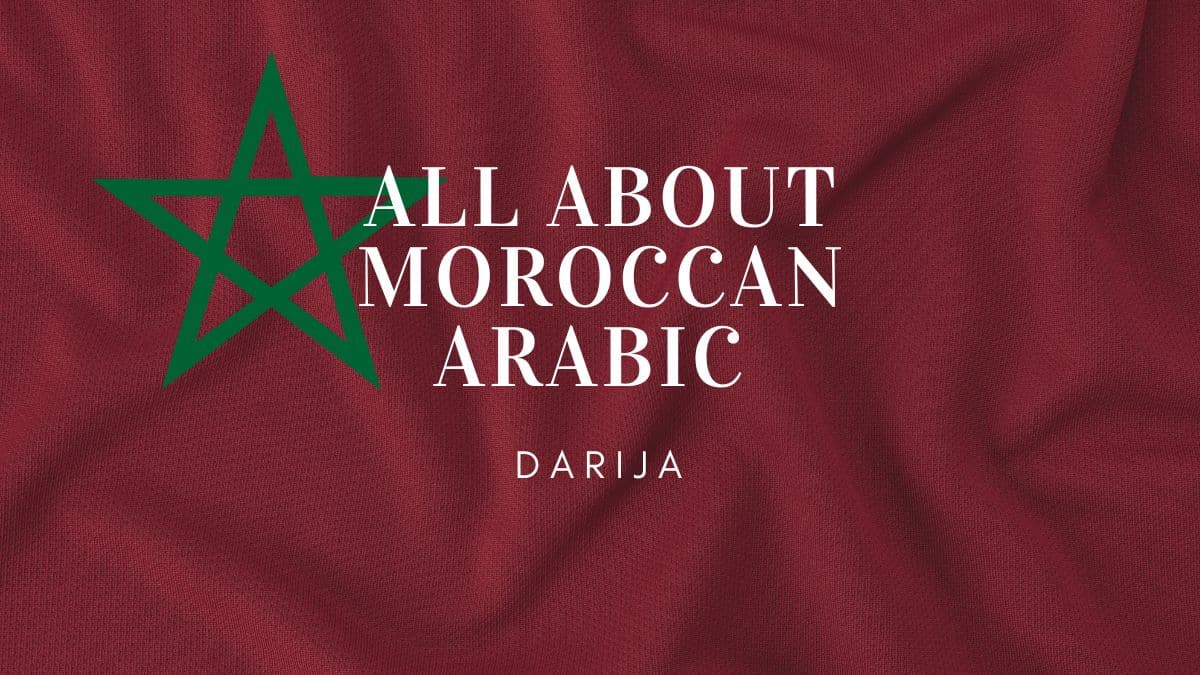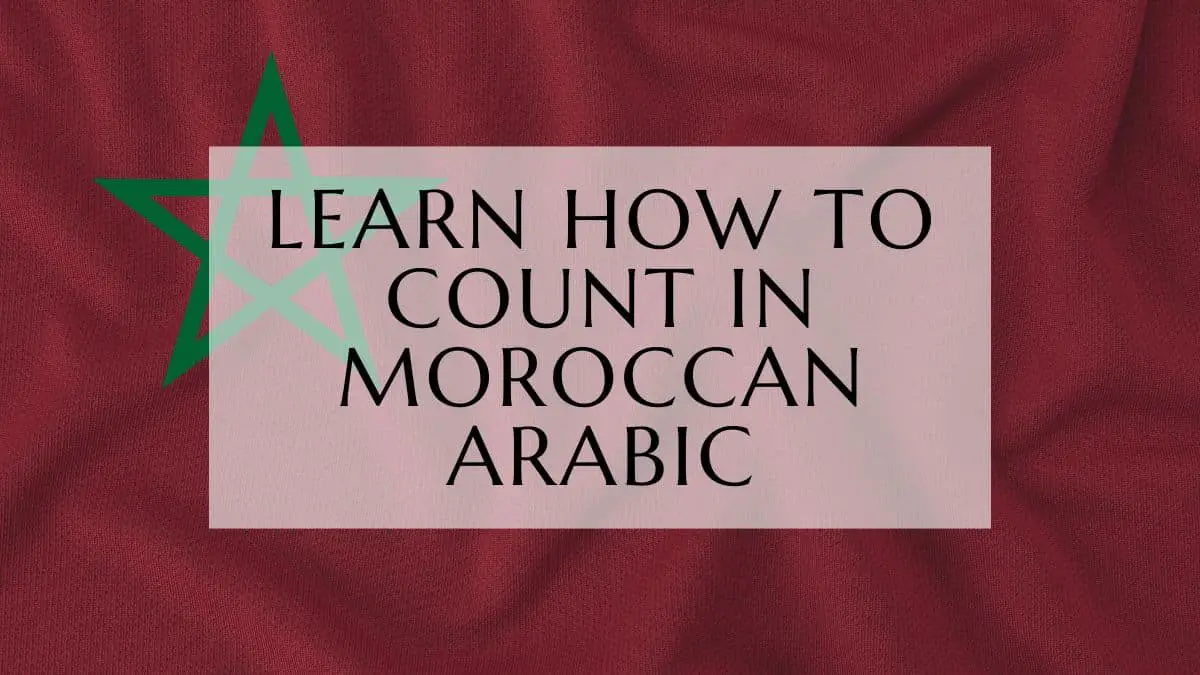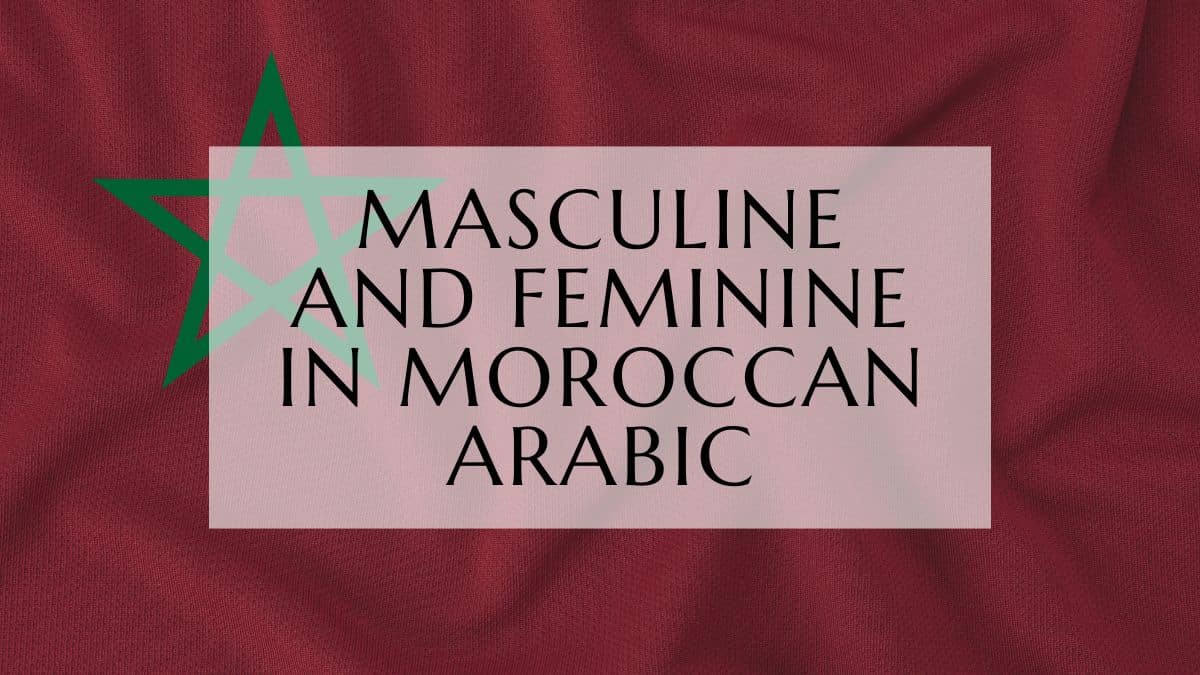Saying “good morning” in Moroccan Arabic is key in daily conversations. If you live or work in a Darija-speaking area, you need to know how to say it. It makes your interactions smoother, whether you’re getting coffee, greeting someone at work, or chatting with locals.
This guide covers everything from “صباح الخير” (ṣbāḥ l-khīr / good morning) to casual greetings. Learning these phrases will help you greet the day right and leave a positive impression.

The Basics: صباح الخير and Common Variations
The most common way to say “good morning” in Moroccan Arabic is “صباح الخير” (ṣbāḥ l-khīr / good morning). This phrase literally translates to “morning of goodness.” It’s a polite and widely-used way to start the day in Darija.
There are other ways to greet someone in the morning too. You can say “صباح” (ṣbāḥ / morning), “نهار مبارك” (nhār mbārk / blessed day), or “صباح الخير على الجميع” (ṣbāḥ l-khīr ʿlā l-jamīʿ / good morning to everyone).
| Greeting | Meaning |
|---|---|
| صباح الخير (ṣbāḥ l-khīr) | Good morning |
| صباح (ṣbāḥ) | Morning |
| نهار مبارك (nhār mbārk) | Good day |
| صباح الخير على الجميع (ṣbāḥ l-khīr ʿlā l-jamīʿ) | Good morning to everyone |
“The most common way to say ‘good morning’ in Moroccan Arabic is ‘صباح الخير,’ which directly translates to ‘morning of goodness.’”
Formal and Respectful Greetings
Saying “good morning” in Moroccan Arabic can change based on who you’re talking to. To show more respect, you can add titles to your greetings.
For example, “صباح الخير أستاذة” (ṣbāḥ l-khīr ustādha / good morning, teacher-female-) works well when addressing educators. “صباح الخير سيدي” (ṣbāḥ l-khīr sīdī / good morning, sir) is perfect for older men or those in a position of respect. “صباح الخير سيداتي وسادتي” (ṣbāḥ l-khīr sīdātī w sādatī / good morning, ladies and gentlemen) is ideal for formal group settings.
These greetings show that you understand social norms and respect people’s roles in society. They’re essential in professional or academic environments where politeness is key.
| Formal Greeting | Translation | Appropriate Usage |
|---|---|---|
| صباح الخير أستاذة (ṣbāḥ l-khīr ustādha) | Good morning, teacher | When addressing an educator or someone in a position of authority |
| صباح الخير سيدي (ṣbāḥ l-khīr sīdī) | Good morning, sir | When speaking to an older man or someone deserving of respect |
| صباح الخير سيادي (ṣbāḥ l-khīr syadi) | Good morning, ladies and gentlemen | When greeting a group in a formal setting, like a meeting |
Learning these formal greetings in Darija can help you navigate social and professional situations with confidence, showing you respect Moroccan customs.

Good Morning in Moroccan Arabic
The most common way to say “good morning” in Moroccan Arabic is “صباح الخير” (ṣbāḥ l-khīr / good morning). This greeting is used in Darija-speaking regions and is crucial for anyone wanting to communicate effectively in Moroccan Arabic.
“صباح الخير” (ṣbāḥ l-khīr) is typically used before noon to greet someone politely. In some regions, you might hear “صباح النور” (ṣbāḥ n-nūr / morning of light), but “صباح الخير” (ṣbāḥ l-khīr) is more common.
For a casual good morning, people might say “نهار مبارك” (nhār mbārk / good day), “صباح” (ṣbāḥ / morning), or “كيف داز صباحك؟” (kīf dāz ṣbāḥk / how was your morning?). Adding titles like سيدي (sīdī / sir), لالة (lalla / madam), can make the greeting more formal.
In Moroccan culture, greetings are often accompanied by handshakes, hugs, or even cheek kisses depending on the local customs.
Romantic Good Morning Greetings
To make your special someone’s morning more magical, you can use romantic good morning phrases in Moroccan Arabic. You could say “صباح الخير حبي” (ṣbāḥ l-khīr ḥobbi / good morning, my love), “صباح الخير الزين” (ṣbāḥ l-khīr azin/ good morning, beautiful/handsome)
These loving greetings can brighten your partner’s day, whether you’re together or apart. They add a romantic touch to your morning interactions.
It’s important to be sincere when saying these greetings. Adding a little Darija to your morning can strengthen your bond and bring joy to your partner’s day.
| Romantic Moroccan Arabic Greeting | English Translation |
|---|---|
| صباح الخير حبي (ṣbāḥ l-khīr hobbi) | Good morning, my love |
| صباح الخير الزين (ṣbāḥ l-khīr azin) | Good morning, beautiful/handsome |
“Expressing your affection and appreciation in the morning can set a positive tone for the day.”
Casual and Regional Expressions
There are many ways to say “good morning” in Moroccan Arabic, beyond the formal “صباح الخير” (ṣbāḥ l-khīr). You can say “صباح” (ṣbāḥ / morning), “نهار مبارك” (nhār mbārk / good day). You can also say “نهار مبارك” (nhār mbārk / have a blessed day).
Other casual morning greetings include “هيا!” (hyā / get up!), “نوض!” (nūḍ / wake up!), . You can also ask about someone’s sleep with phrases like “كيف صبحت؟” (kīf ṣbḥt? / how did you wake up?) or “كيف نعستي؟” (kīf n’asti? / how did you sleep?). Asking if they rested well, “واش نعستي مزيان؟” (wāsh nʿstī mzyān? / did you sleep well?), or if they relaxed, “واش ارتحتي؟” (wāsh rtaḥtī? / did you rest?), shows you care.
To start the day on a positive note, try saying “كيف غادي صباحك؟” (kīf ghadi ṣbāḥk? / how’s your morning going?). Or say “نهارك زين” (nhārek zīn / have a beautiful morning). These phrases add a sense of optimism and warmth to your greetings.
Oualid Cheddadi is the founder of Lingualid, a platform that inspires independent language learners worldwide, regardless of the language they are learning. The name “Lingualid” is derived from the Portuguese word for “language,” “língua,” and the last three letters of Oualid’s name, “Lid.”



